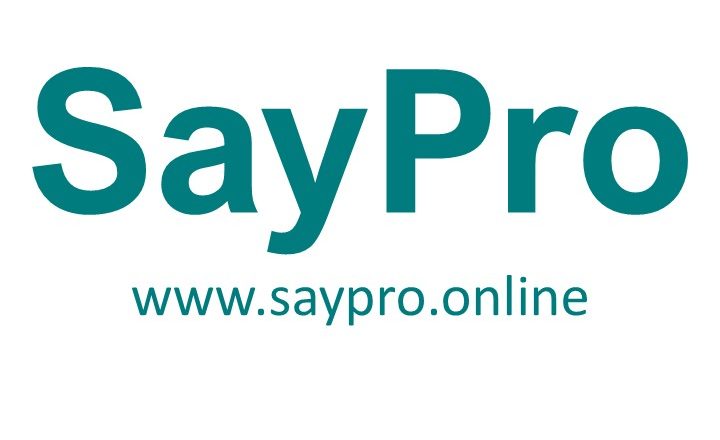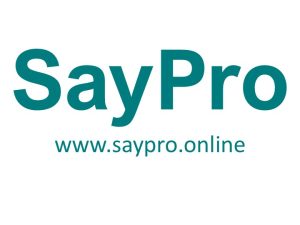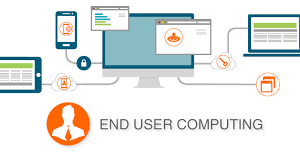SayPro Online Course in Home Based Personal Care Worker 104792
- Description
- Curriculum
- FAQ
- Reviews
- Grade
Course Description: Home-Based Personal Care Worker (SAQA ID: 104792)
Unlock Your Potential as a Compassionate Caregiver in South Africa’s Growing Healthcare Sector!
The Home-Based Personal Care Worker (SAQA ID: 104792) is a nationally recognised qualification at NQF Level 3, comprising 135 credits and typically completed over 12 months. Accredited by the Quality Council for Trades and Occupations (QCTO), this comprehensive course is designed to equip individuals with the essential knowledge, practical skills, and ethical understanding required to provide invaluable care services directly within a client’s home environmen
Course Overview: In an era where dignity, independence, and person-centered care are highly valued, the demand for skilled home-based personal care workers is rapidly increasing. This qualification prepares you to become a vital member of the healthcare support team, enabling vulnerable individuals – including the elderly, those with disabilities, or clients requiring palliative care – to live comfortably and safely in their familiar surroundings.
-
11.1 CONTACT DETAILSText lesson
-
21.2 COMPETENCEText lessonThis lesson is locked because you haven't completed the previous one yet. Finish the previous lesson to unlock this one.
-
31.3 ASSESSMENT STRATEGYText lessonThis lesson is locked because you haven't completed the previous one yet. Finish the previous lesson to unlock this one.
-
41.4 ASSESSMENT PREPARATIONText lessonThis lesson is locked because you haven't completed the previous one yet. Finish the previous lesson to unlock this one.
-
51.5 AGREED ASSESSMENT PLANText lessonThis lesson is locked because you haven't completed the previous one yet. Finish the previous lesson to unlock this one.
-
61.6 Interview (RPL Purposes)Text lessonThis lesson is locked because you haven't completed the previous one yet. Finish the previous lesson to unlock this one.
-
71.7 LETTER OF COMMITMENT FROM THE LEARNERText lessonThis lesson is locked because you haven't completed the previous one yet. Finish the previous lesson to unlock this one.
-
81.8 Declaration of AuthenticityText lessonThis lesson is locked because you haven't completed the previous one yet. Finish the previous lesson to unlock this one.
-
91.9 PORTFOLIO BUILDINGText lessonThis lesson is locked because you haven't completed the previous one yet. Finish the previous lesson to unlock this one.
-
101.10 RECORD OF LEARNINGText lessonThis lesson is locked because you haven't completed the previous one yet. Finish the previous lesson to unlock this one.
-
111.11 ASSESSMENT DECISION & EVIDENCE EVALUATION RECORDText lessonThis lesson is locked because you haven't completed the previous one yet. Finish the previous lesson to unlock this one.
-
121.12 Assessor’s feedback report to the candidateText lessonThis lesson is locked because you haven't completed the previous one yet. Finish the previous lesson to unlock this one.
-
131.13 Moderator’s ReportText lessonThis lesson is locked because you haven't completed the previous one yet. Finish the previous lesson to unlock this one.
-
141.14 ASSESSMENT REVIEWText lessonThis lesson is locked because you haven't completed the previous one yet. Finish the previous lesson to unlock this one.
-
151.15 Candidate Appeal FormText lessonThis lesson is locked because you haven't completed the previous one yet. Finish the previous lesson to unlock this one.
-
161.16 Assessor's Contingency PlanText lessonThis lesson is locked because you haven't completed the previous one yet. Finish the previous lesson to unlock this one.
-
172.1 SayPro Lesson in Introduction to Home-Based CareText lessonThis lesson is locked because you haven't completed the previous one yet. Finish the previous lesson to unlock this one.
-
182.2 SayPro Lesson in Human Anatomy and Basic PhysiologyText lessonThis lesson is locked because you haven't completed the previous one yet. Finish the previous lesson to unlock this one.
-
192.3 SayPro Lesson in Daily Care ActivitiesText lessonThis lesson is locked because you haven't completed the previous one yet. Finish the previous lesson to unlock this one.
-
202.4 SayPro Lesson in Medication AssistanceText lessonThis lesson is locked because you haven't completed the previous one yet. Finish the previous lesson to unlock this one.
-
212.5 SayPro Lesson in Emergency Procedures and Basic First AidText lessonThis lesson is locked because you haven't completed the previous one yet. Finish the previous lesson to unlock this one.
-
222.6 SayPro Lesson in Working in a Home EnvironmentText lessonThis lesson is locked because you haven't completed the previous one yet. Finish the previous lesson to unlock this one.
-
232.7 SayPro Lesson in Communication SkillsText lessonThis lesson is locked because you haven't completed the previous one yet. Finish the previous lesson to unlock this one.
-
242.8 SayPro Lesson in Documentation and Record KeepingText lessonThis lesson is locked because you haven't completed the previous one yet. Finish the previous lesson to unlock this one.
-
252.9 SayPro Lesson in Practical Skills & Workplace ExperienceText lessonThis lesson is locked because you haven't completed the previous one yet. Finish the previous lesson to unlock this one.
-
262.10 SayPro Lesson in Final Assessment PreparationText lessonThis lesson is locked because you haven't completed the previous one yet. Finish the previous lesson to unlock this one.
-
273.1 Introduction to Home-Based CareAssignmentThis lesson is locked because you haven't completed the previous one yet. Finish the previous lesson to unlock this one.
-
283.2 Human Anatomy and Basic PhysiologyAssignmentThis lesson is locked because you haven't completed the previous one yet. Finish the previous lesson to unlock this one.
-
293.3 Daily Care ActivitiesAssignmentThis lesson is locked because you haven't completed the previous one yet. Finish the previous lesson to unlock this one.
-
303.4 Medication AssistanceAssignmentThis lesson is locked because you haven't completed the previous one yet. Finish the previous lesson to unlock this one.
-
313.5 Emergency Procedures and Basic First AidAssignmentThis lesson is locked because you haven't completed the previous one yet. Finish the previous lesson to unlock this one.
-
324.1 Working in a Home EnvironmentAssignmentThis lesson is locked because you haven't completed the previous one yet. Finish the previous lesson to unlock this one.
-
334.2 Communication SkillsAssignmentThis lesson is locked because you haven't completed the previous one yet. Finish the previous lesson to unlock this one.
-
344.3 Documentation and Record KeepingAssignmentThis lesson is locked because you haven't completed the previous one yet. Finish the previous lesson to unlock this one.
-
354.4 Practical Skills & Workplace ExperienceAssignmentThis lesson is locked because you haven't completed the previous one yet. Finish the previous lesson to unlock this one.
This is a nationally recognised qualification in South Africa, registered on the National Qualifications Framework (NQF) at Level 3. It trains individuals to provide essential care services to clients in their own homes, focusing on daily living activities, basic health support, and promoting the client's independence and well-being in a non-clinical setting.
Assisting with personal hygiene (bathing, grooming, dressing).
Supporting mobility and transfers.
Assisting with feeding and monitoring nutrition.
Providing medication reminders and basic assistance (e.g., applying creams, preparing medications for self-administration).
Observing and reporting changes in the client's condition.
Performing basic first aid and emergency procedures.
Maintaining a safe and comfortable home environment.
Providing companionship and emotional support.
Accurate documentation and record-keeping.
Administer injections or complex medications independently.
Perform invasive medical procedures.
Diagnose illnesses or prescribe treatments.
Provide counselling beyond basic emotional support. Your role is to work under supervision and within a defined care plan, escalating complex issues to a qualified nurse or supervisor.
Introduction to Home-Based Care
Human Anatomy and Basic Physiology
Daily Care Activities
Medication Assistance
Emergency Procedures and Basic First Aid
Working in a Home Environment
Communication Skills
Documentation and Record Keeping
Practical Skills & Workplace Experience
Final Assessment Preparation
Theoretical Assessments: Written tests, assignments, and potentially oral questioning covering the knowledge components.
Practical Assessments: Demonstrations of caregiving skills in a simulated or real client environment, observed by an assessor.
Portfolio of Evidence (PoE): A collection of your completed assignments, daily care logs, incident reports, reflections, and workplace feedback that demonstrates your competence throughout the training.
A Grade 9 (ABET Level 4) or Grade 10-12 certificate.
Proficiency in English (reading, writing, and speaking).
A genuine interest in caring for others.
Some providers may require an interview or a basic literacy/numeracy assessment.
Private home care agencies.
Non-governmental organisations (NGOs) providing community health services.
Retirement homes or assisted living facilities (providing personal care support).
Working directly for private families as a caregiver. You may also pursue further studies in nursing or other healthcare fields at higher NQF levels.
Create flashcards for medical terms and key concepts.
Practice care routines on mannequins or with peers.
Keep a daily journal to reflect on your learning and experiences.
Join study groups to discuss topics and prepare for assessments.
Don't hesitate to ask your instructors or mentors for clarification.

Course Requirements: Home-Based Personal Care Worker
To enroll in and successfully complete the Home-Based Personal Care Worker (SAQA ID: 104792) qualification, prospective learners typically need to meet the following criteria:
-
Educational Qualification:
- A minimum of a Grade 9 (ABET Level 4) certificate.
- Preference may be given to applicants with a Grade 10, 11, or 12 (Matric/National Senior Certificate), or an equivalent NQF Level 2 qualification.
-
Language Proficiency:
- Demonstrated proficiency in English, as it is typically the language of instruction and documentation. This includes the ability to read, write, and communicate effectively in English.
-
Age:
- Applicants must generally be a minimum of 18 years old at the time of practical placement, due to the nature of working with vulnerable individuals and workplace safety regulations. Some institutions may accept younger students for the theoretical component, provided they meet the age requirement before commencing practicals.
-
Personal Attributes:
- A genuine interest in and passion for caring for others.
- Demonstrated empathy, patience, and compassion.
- Good interpersonal and communication skills.
- A commitment to professionalism and ethical conduct.
-
Health and Physical Fitness:
- The role involves physical tasks such as assisting with mobility, transfers, and lifting. Applicants should be in good physical health and capable of performing the practical duties of a care worker.
- Some training providers may require a medical certificate or declaration of health.
-
Criminal Record Check / Police Clearance:
- Due to the vulnerable nature of the clients and working in private homes, a clear criminal record is almost always a mandatory requirement. Applicants will likely need to undergo a police clearance check before practical placement.
-
Identification:
- A valid South African Identity Document (ID) or a valid passport for foreign nationals with appropriate study permits.
-
Pre-Assessment / Interview (Optional):
- Some training institutions may conduct a pre-assessment (e.g., basic literacy and numeracy test) or an interview to gauge the applicant's suitability, motivation, and communication skills for the care profession.
Who Should Enroll? This course is ideal for compassionate individuals who possess a genuine desire to care for others, have a strong work ethic, and are committed to upholding professional standards. It suits those seeking a rewarding career in healthcare support, with a foundational education typically at Grade 9 (ABET Level 4) or higher.
What You Will Learn: The curriculum is meticulously structured across 10 key sections, ensuring a holistic and practical learning experience:
- Introduction to Home-Based Care: Understand the fundamental principles, scope, and ethical foundations of providing care in a home setting, including confidentiality, professionalism, and cultural sensitivity.
- Human Anatomy and Basic Physiology: Gain essential knowledge of major body systems, common age-related health conditions (like diabetes, arthritis, hypertension), and basic medical terminology, enabling informed observation and reporting.
- Daily Care Activities: Master practical skills in assisting clients with personal hygiene (bathing, grooming, dressing), safe bed making, proper patient positioning to prevent complications, and providing dignified feeding assistance.
- Medication Assistance: Learn about different types of medications, safe storage and handling, and the care worker's defined role in assisting clients with self-administration, focusing on accuracy and reporting.
- Emergency Procedures and Basic First Aid: Develop critical skills to respond effectively to common emergencies, including CPR, choking response, managing seizures, falls, and minor burns, along with essential infection control measures.
- Working in a Home Environment: Adapt care practices to the unique home setting, conducting risk assessments, ensuring the safe use of household equipment, and implementing effective fall prevention strategies.
- Communication Skills: Develop empathetic verbal and non-verbal communication techniques for effective interaction with clients, families, and healthcare professionals, including working with non-verbal clients and conflict resolution.
- Documentation and Record Keeping: Learn to maintain accurate, confidential, and legally compliant records, including daily care logs, incident reports, medication charts, and client progress notes.
- Practical Skills & Workplace Experience: Apply theoretical knowledge in real-world care settings through supervised practice, receiving constructive feedback from mentors, and engaging in vital self-assessment and reflection.
- Final Assessment Preparation: Strategically prepare for both theoretical and practical assessments, including reviewing sample questions, utilizing practical checklists, and preparing a comprehensive Portfolio of Evidence.
Recent Posts
- Daily Activity
- SayPro Target key industry professionals and organizations to attend the event
- SayProCHAR Daily Activity Report for Itumeleng Malete SayPro Education Specialist 17/06/2025
- SayPro Ensure event content on the SayPro website is regularly updated and optimized for search
- SayPro Design and implement a marketing campaign using email, social media, and online ads to increase registration


